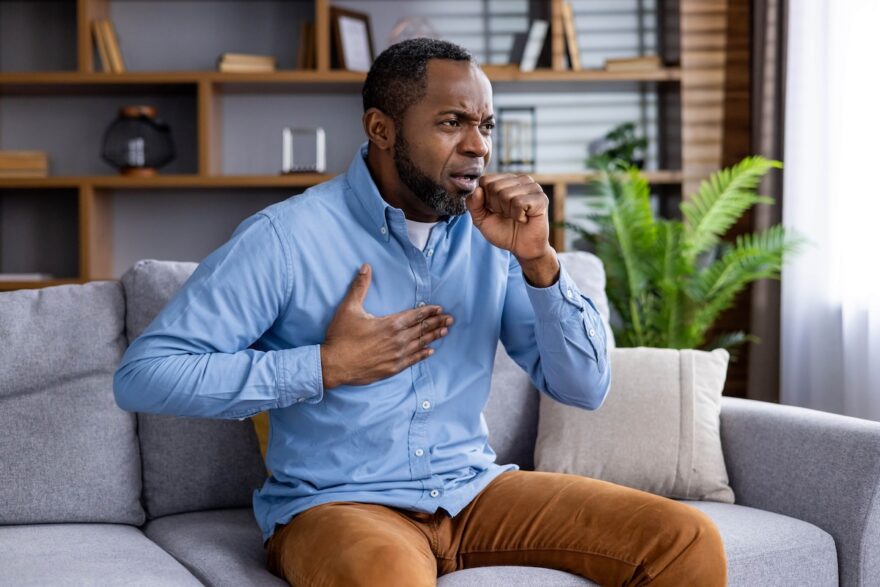Coughing after quitting smoking
It can be infuriating to find yourself still coughing after quitting cigarettes. Worse than that, developing a smokers cough after quitting, just seems wrong.

What’s stopping you?
Not sure if you’re ready to stop smoking? Worried about finding it difficult?
Start the quizIn this article, we’ll examine the cause of coughing after quitting smoking and answer the burning question: how long do you cough up phlegm after quitting smoking?
Causes of Coughing After Quitting Smoking
Coughing after quitting smoking can occur as a result of the body’s natural response to heal and cleanse the respiratory system from years of tobacco smoke exposure.
When a person quits smoking, the cilia (hair-like structures in the airways) begin to recover and regain their ability to clear out mucus and debris. As this process accelerates, it can lead to increased coughing as the lungs work to expel accumulated tar, toxins, and mucus.
Additionally, quitting smoking reduces the irritation and inflammation caused by tobacco smoke, which can initially trigger coughing as the airways adjust to the absence of these irritants.
While this post-cessation cough is common and typically temporary, it serves as a positive sign of the body’s recovery and should improve over time with continued abstinence from smoking.
Relief for Coughing After Quitting Smoking
Relief for coughing after quitting smoking can be achieved through several supportive measures.
Staying hydrated is crucial as it helps thin mucus and facilitates its removal from the airways. Using a humidifier or taking steam inhalation can also moisturise and soothe irritated air passages.
Over-the-counter cough suppressants can be helpful for controlling persistent coughing fits, while mucolytic medications can aid in breaking down and clearing mucus.
Engaging in regular physical activity can promote lung health and expedite the recovery process. Moreover, maintaining a healthy diet rich in fruits and vegetables provides essential
vitamins and antioxidants that support respiratory function. If the cough persists or worsens it’s important to seek medical advice to ensure you receive appropriate treatment.
Fast facts:
- What is a stop smoking cough? A cough that starts or is exacerbated as a result of quitting smoking
- When do you start coughing after quitting smoking? Some people don’t develop a post-quit cough – others notice it within a day or so of quitting.
- What is the cause of coughing after stopping smoking? It’s the body’s natural response to heal and cleanse the respiratory system from years of tobacco smoke exposure and the airways adjustment to the abscene of irritants.
- How long do you cough up mucus after quitting smoking? It can continue for days or a few weeks. Always seek advice from a doctor if it persists or worsens beyond a few weeks so that appropriate treatment can be administered.
If you do get a cough after quitting smoking the important thing is not to panic and not to consider it a negative thing. It is far better that your body expels the gunk from your lungs and airways than for it to remain. It should be an enjoyable, purging process.
Further reading:
Would you like to know more about how nicotine withdraws from your body? Why not read about the effects of quitting smoking?
